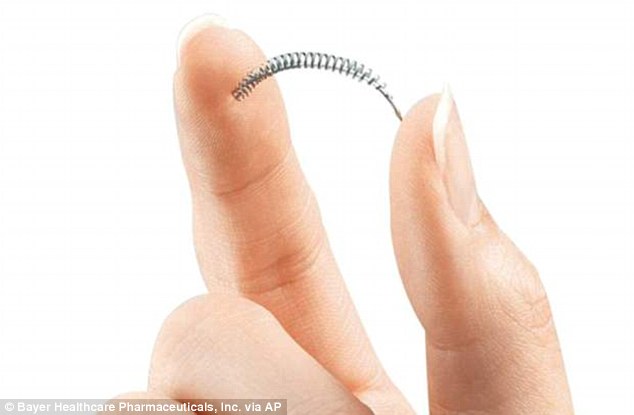-
Tips for becoming a good boxer - November 6, 2020
-
7 expert tips for making your hens night a memorable one - November 6, 2020
-
5 reasons to host your Christmas party on a cruise boat - November 6, 2020
-
What to do when you’re charged with a crime - November 6, 2020
-
Should you get one or multiple dogs? Here’s all you need to know - November 3, 2020
-
A Guide: How to Build Your Very Own Magic Mirror - February 14, 2019
-
Our Top Inspirational Baseball Stars - November 24, 2018
-
Five Tech Tools That Will Help You Turn Your Blog into a Business - November 24, 2018
-
How to Indulge on Vacation without Expanding Your Waist - November 9, 2018
-
5 Strategies for Businesses to Appeal to Today’s Increasingly Mobile-Crazed Customers - November 9, 2018
Safety concerns over new female sterilization device
Dr. Art Sedrakyan of Weill Medical College of Cornell University and colleagues analyzed data from 8,048 women who got Essure implants and compared them to 44,278 who had standard surgery to block or “tie” their fallopian tubes between 2005 and 2013 in New York State.
Advertisement
Researchers have now carried out the first study to compare the performance, safety and reliability of these two widely used forms of female sterilisation.
They found that women who underwent hysteroscopic sterilisation were more than 10 times as likely to need reoperation than those who had laparoscopic sterilisation, prompting the study authors to warn of a “serious safety concern”.
Last night British regulators insisted they had no reason to think the device was unsafe but several United Kingdom law firms are examining claims on behalf of women who claim to have suffered problems.
The team did not find that the risk of getting pregnant anyway was any greater with Essure than with surgery.
Limitations of the study include the fact that, being an observational study, a few unmeasured factors may have influenced the relationship between use of the Essure device and the increased risk of reoperation.
The likelihood of reoperation was eight times higher at 2 years after the initial operation and six times higher after 3 years.
At one year after surgery, hysteroscopic sterilization was not associated with a higher risk of unintended pregnancy; however, it was associated with a significantly increased risk of reoperation (10.16-fold increased risk) compared to laparoscopic sterilization. Since the device went on the market 13 years ago, the F.D.A. has received more than 5,000 complaints about serious complications, including severe back and pelvic pain; painful intercourse; heavy, prolonged menstrual bleeding; chronic fatigue; autoimmune diseases.
Essure was linked to an extra 21 re-operations per 1,000 patients undergoing surgery.
In 482 cases, patients said the device had migrated to elsewhere in their body while 259 reported the device breaking.
An estimated 750,000 women have had the Essure sterilization device implanted since it was approved in 2002. In other words, the devices had moved around the body or the women had experienced problems which meant they could no longer tolerate the device.
The authors also found that as the laparoscopic procedure has declined in popularity, the hysteroscopic procedure has become more common. However, we don’t know why. Although the researchers took these issues into account, they may have missed other factors contributing to the results. Four deaths in women with the device were also reported.
The Essure implant has been sold for more than a decade and is frequently pitched to women as the only non-surgical option for permanent birth control.
A new study appears to confirm what a few women have said about a permanent birth control device called Essure.
The Medical and Healthcare products Regulatory Agency (MHRA) said it could not disclose the number of reports it had received regarding Essure but it was aware of a few problems among users.
“We keep all such devices under review and will consider this latest evidence and offer updated advice where appropriate”.
Any type of sterilisation, while suitable for a few couples, is usually permanent. Once inserted, the Essure method of contraception should be considered irreversible.
Advertisement
For more information, visit the NHS Choices Contraceptive Guide.





























